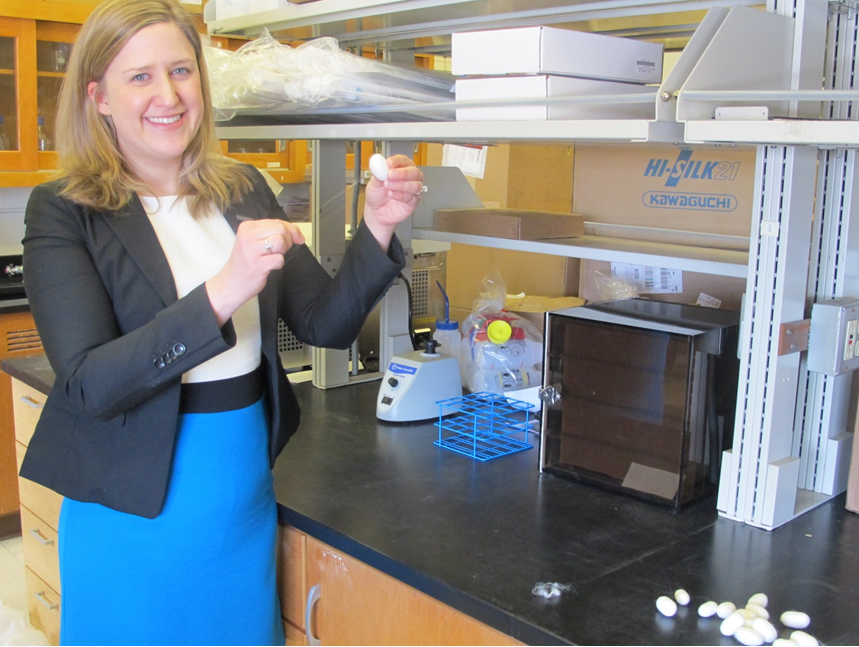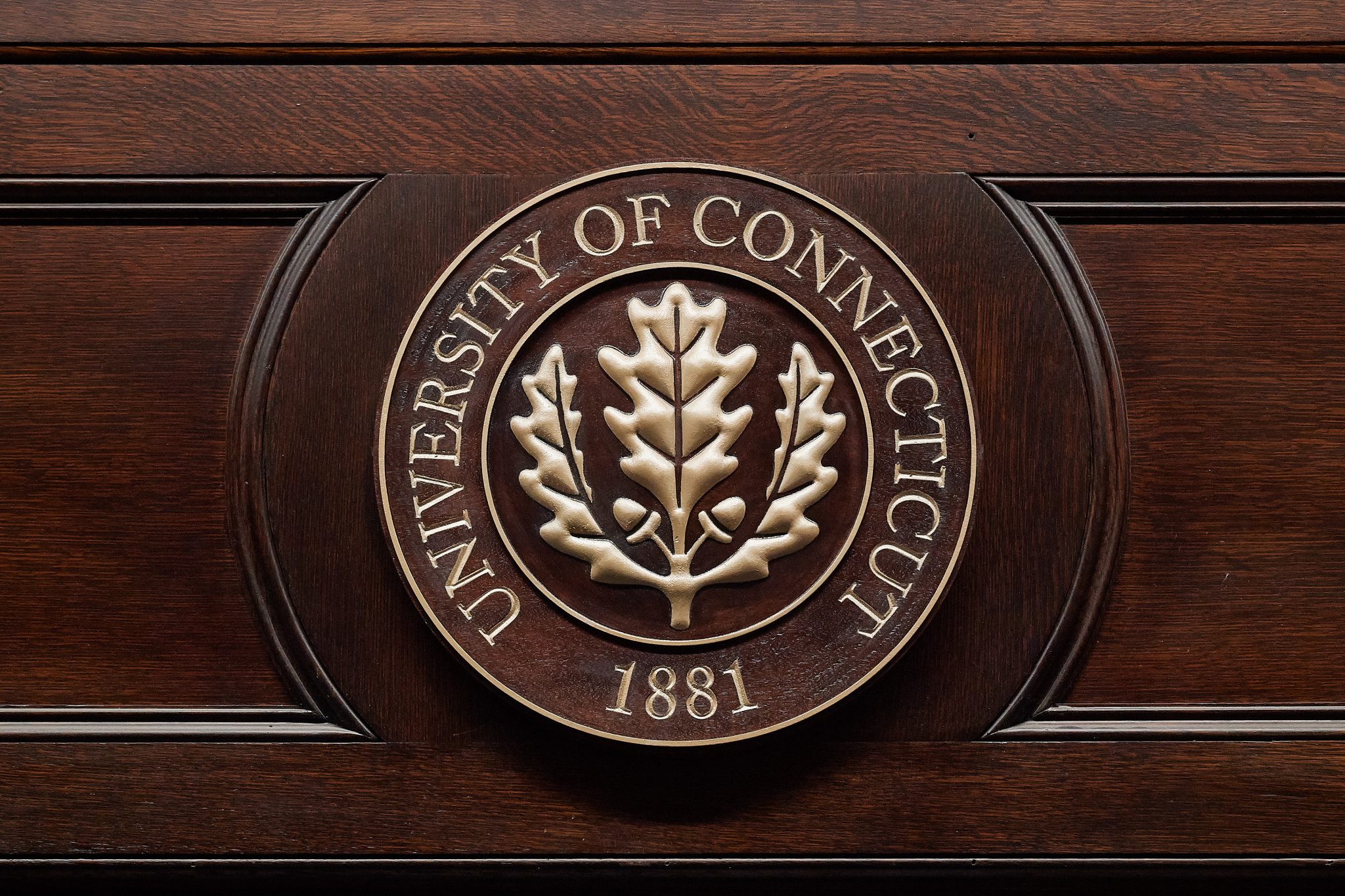By Sydney Souder
Silk is known as the material for scarves, purses and other luxury goods. But UConn’s Kelly Burke wants to use it to help people with diabetes and other chronic diseases.
“Typically, we think of silk as a means of creating fabrics or sutures,” says Dr. Burke, an assistant professor in the Department of Chemical & Biomolecular Engineering. “However, it is possible to chemically modify the proteins in silk materials to alter their functionality.” To this end, she is using her breadth of experience to create stimuli-responsive biomaterials from silk.
Dr. Burke’s goal is to manipulate silk polymers so that human cells respond to her materials. Specifically, she aims for her materials to moderate inflammation and promote healing. This could be invaluable for people with chronic diseases that impede healing, such as diabetes. Most existing wound materials are passive and only protect the area from bacteria and dirt. Dr. Burke seeks to create an interactive material that controls cells and encourages healing. Natural silkworm material is not recognized by the body, so the challenge is to ensure they respond to the chronically-inflamed environments.
Burke, a key member of the Polymer Program in the Institute of Materials Science, studied polymer synthesis and characterization as a graduate student at Case Western Reserve University. She then delved into the world of silk materials as an NIH postdoctoral fellow at Tufts. She has been with UConn since August last year as an assistant professor. But she’s well familiar with UConn, having earned her B.S. in chemical engineering in 2005. So she already knew the campus and many of the people here, not to mention where to find her favorite Dairy Bar ice cream (Coffee Expresso Crunch).
“In many ways, being on the faculty at UConn is like coming home,” she says.
With tremendous support from Connecticut state initiatives like Next Generation Connecticut, Tech Park, and Bioscience Connecticut, Dr. Burke says with a smile, “It’s an exciting time to be at UConn.”



